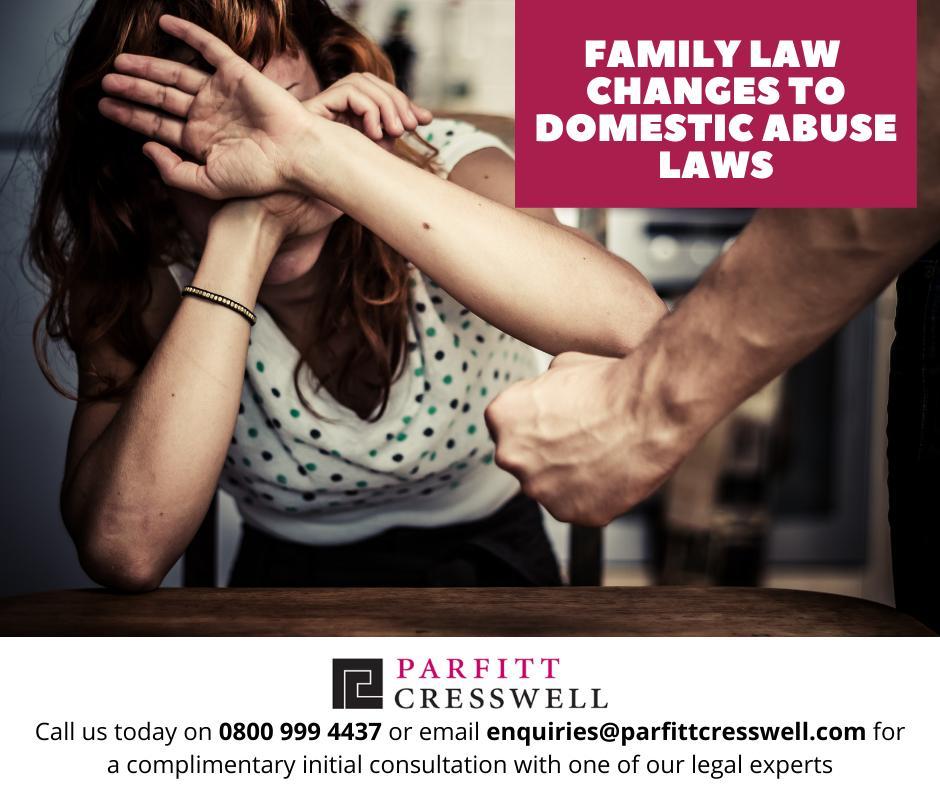Changes to Domestic Abuse Laws
The pandemic has had a massive impact on victims of domestic abuse. At its worst point during the first lockdown, a joint investigation between Panorama and Women's Aid showed that a domestic abuse call was reported to the police every 30 seconds in the first seven weeks of lockdown. That is horrific and unacceptable. The statistics prior to the lockdown were staggering in itself with one in four women reporting abuse and one in six men. Note, these are only the reported cases. Thousands more cases go unreported for a variety of reasons. It is fairly common for victims to normalise the perpetrator’s behaviour especially when it's perpetuated over time. A victim starts believing that they have no self-worth or that no one will believe them, which eats away at their confidence. Fear is another factor as well as the feeling of being alone and trapped, manipulated, or threatened to stay. Cultural pressures where it is not deemed “acceptable” to break the family unit or speak about a partner’s behaviour places an unbearable burden on a victim’s shoulders to continue suffering in silence.
The Domestic Abuse Act 2021 provides definitions of abuse as follows:
Behaviour is ‘abusive’ if it consists of any of the following:-
- Physical or sexual abuse;
- Violent or threatening behaviour;
- Controlling or coercive behaviour;
- Psychological, emotional or other abuse
And it does not matter whether the behaviour consists of a single incident or a course of conduct.
‘Economic abuse’ means any behaviour that has a substantial adverse effect on the person’s ability to:
- Acquire, use or maintain money or other property, or
- Obtain goods or services
Controlling or coercive behaviour includes incidences where perpetrators and victims no longer live together, revenge porn or the threat to share intimate images with the intention to cause distress and non-fatal strangulation.
The psychological and emotional effects of domestic abuse are long lasting and often have a severe impact on victims. It can affect their ability to form meaningful relationships in the future and can affect their confidence, self-esteem and perpetuate the feeling that the perpetrator continues to have a hold over the victims. Organisations such as Women's Aid and Rights of Women provide fantastic advice to those who are victims of domestic abuse.
There are two types of injunctions that a victim can seek at Court. The first is a Non-Molestation Order, which prevents the perpetrator from intimidating, pestering or harassing the victim or instructing any third party to do so. The second injunction is an Occupation Order, which excludes the perpetrator from the family home. These applications can be made without notice to the perpetrator so that it offers immediate protection. Once an injunction is granted, the Court will set a return date where the perpetrator will be given an opportunity to defend themselves.
Recognising that abuse, any form of abuse, is the first step to seeking help and takes a tremendous amount of courage. The next should be to speak to an expert that deals with domestic abuse. It can be overwhelming to search for remedies on the internet as the information can be misconstrued or misunderstood. Speaking to a family lawyer / Solicitor might feel like a daunting experience but the right lawyer / Solicitor will make you feel comfortable and reassured. Talking about abuse is personal and highly emotive but just know that everything is said in confidence and the lawyer / Solicitor will not judge. They are there to guide you on the right legal path and advise you on your options.
If you are in immediate danger, telephone 999 and speak to the police. If you are in a situation where you are unable to speak, press 55 and the police will know that you require immediate assistance. It is then strongly advisable that legal advice is sought so that you are able to make an informed decision. Parfitt Cresswell offer a complimentary initial Consultation so if you do require legal advice, do get in contact.
Simply call 0800 999 4437 today to arrange your complimentary initial telephone/video call consultation with one of our legal experts.

